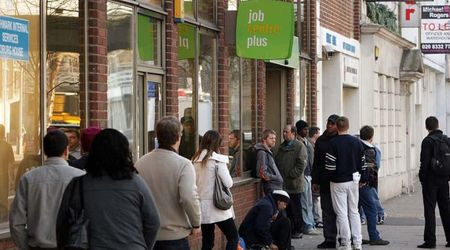Seeking Relief From Credit Card Debt? Here's the Eligibility Criteria for it

In addition to the rising cost of living, credit card debt has become an all too familiar burden for many Americans trying to maintain a certain standard of living. With more than eight out of 10 adults carrying at least one credit card, it's not surprising that the quest for relief from mounting debt is a prevalent concern. If you find yourself struggling with credit card debt, the prospect of credit card debt forgiveness might offer a glimmer of hope. Check out the requirements for eligibility and the avenues available for those seeking financial reprieve.

Understanding credit card debt forgiveness
While there isn't a government-sponsored program specifically designed for credit card debt relief, there are alternative routes individuals can explore. Credit card debt forgiveness, though not guaranteed, is a possibility through negotiations with creditors. This process typically involves settling for a percentage of the total balance owed. Almost anyone facing challenges in meeting their credit card payments may qualify for debt forgiveness.

Debt Settlement Programs
One avenue for credit card debt forgiveness is through debt settlement programs. These services involve a thorough analysis of your financial situation by a debt relief expert. As you make payments to a specialized savings account, the debt settlement company negotiates with creditors to reduce your principal balance.
But a drawback of this is that payments to creditors may be delayed during the savings period, impacting your credit score. Moreover, there's no guarantee that your credit card company will accept the settlement, and if they do, you may face tax implications on the forgiven debt.
Bankruptcy
When debt settlement doesn't provide sufficient relief, bankruptcy becomes an option of last resort. While bankruptcy may negatively affect your credit score in the short term, it can lead to the complete forgiveness of your credit card debt.
Alternatives to debt forgiveness

While debt settlement and bankruptcy are potential solutions, they come with significant consequences for your credit. Consider these alternatives before making a decision.
Explore the possibility of a personal loan to consolidate credit card debts at a lower interest rate. This option often comes with a fixed payment schedule, providing a clear path to payoff.
If you own a home, tapping into its equity can be a cost-effective method to consolidate credit card debts at a lower interest rate.
Debt relief experts can negotiate better terms with creditors and create payment plans tailored to expedite debt repayment.
Many credit card companies offer financial hardship programs that can provide relief through lower interest rates and fixed payment terms. Simply reaching out to your lenders and expressing your need for assistance can sometimes yield positive results.
Credit card debt may feel insurmountable, but there are avenues for relief. If traditional debt consolidation methods fall short, exploring debt settlement programs or bankruptcy could be viable options. At the same time, it's essential to weigh the potential impact on your credit score and financial future before making a decision. Also, seek professional advice to navigate the complexities of credit card debt forgiveness and find the most suitable path to financial freedom.





















